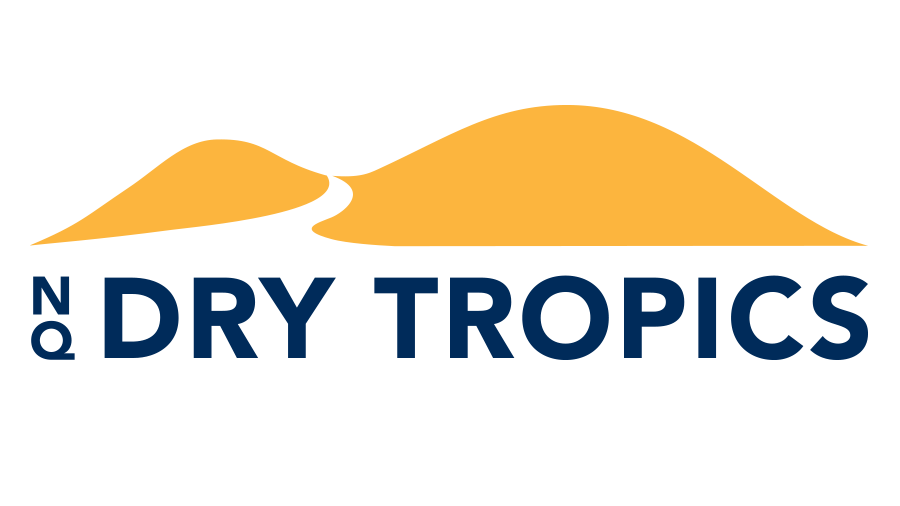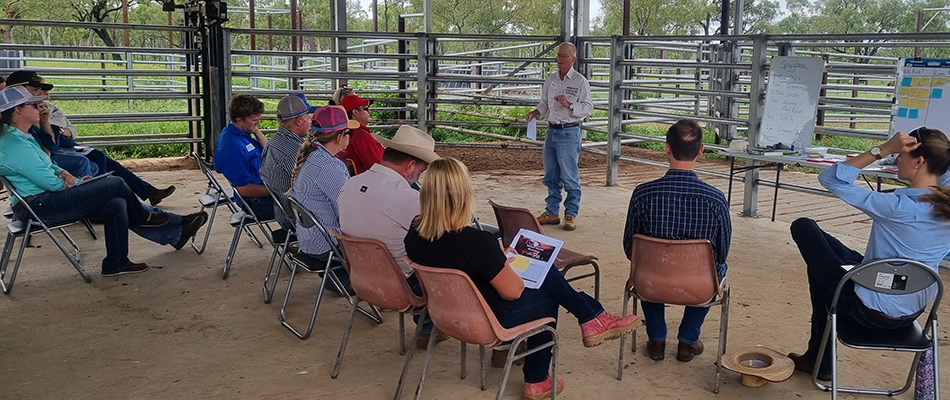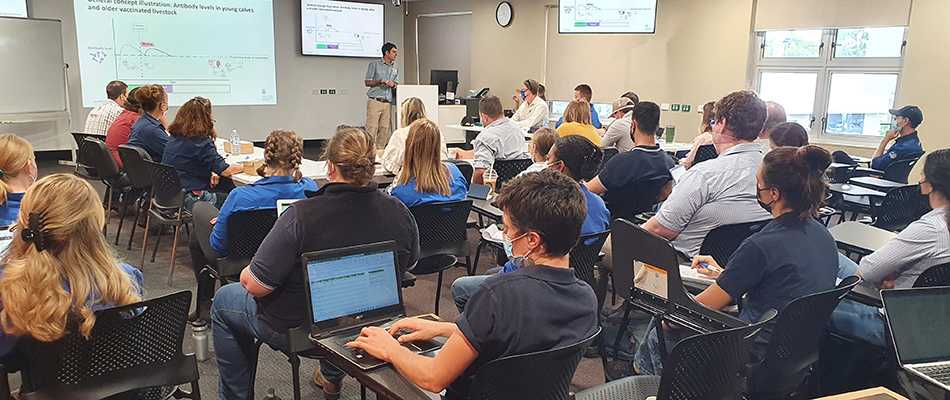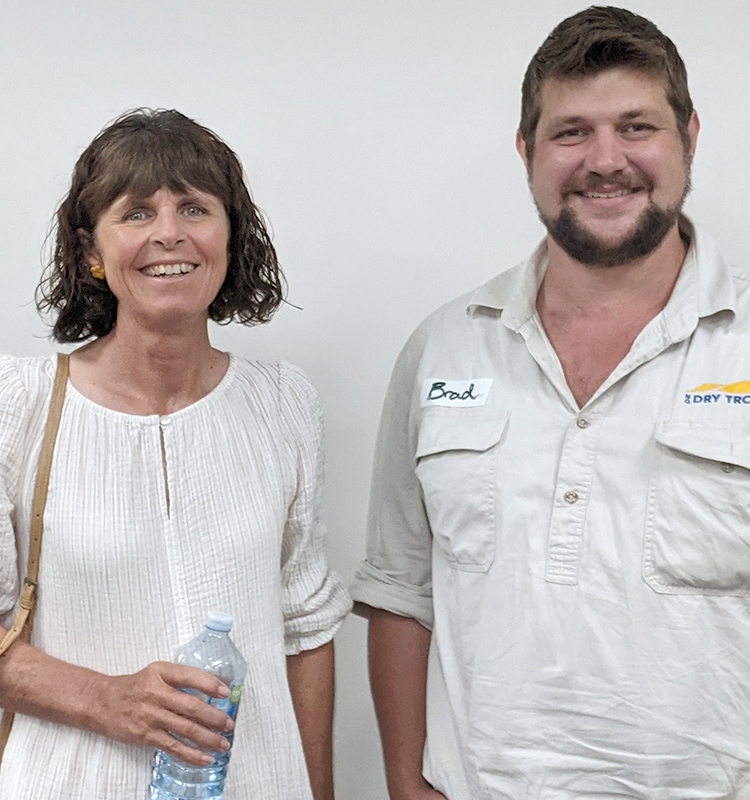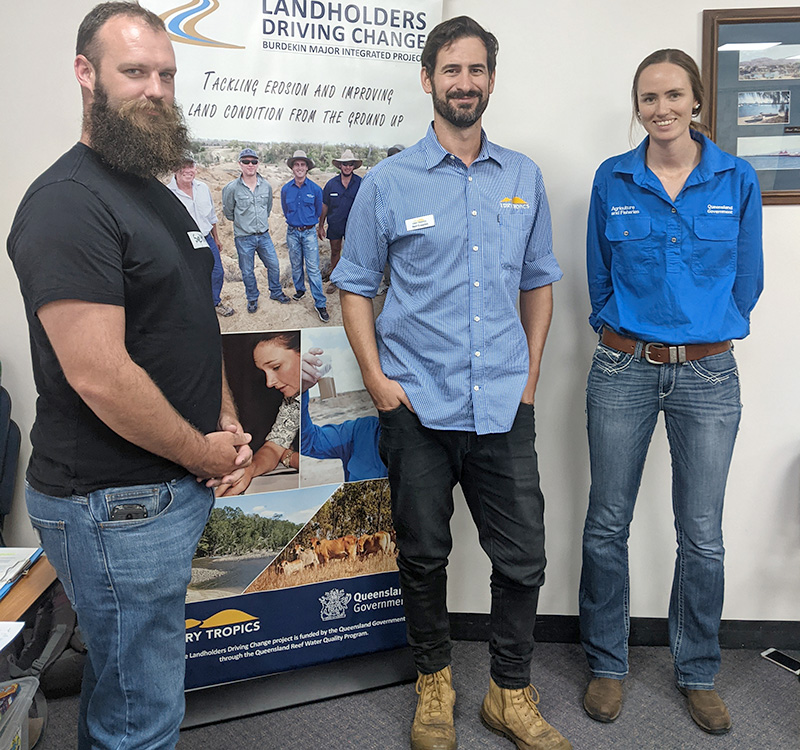Graziers focus on animal health to improve herd productivity
Dr Geoffry Fordyce, guest speaker at the Spyglass Research Station workshop spoke about the vital role played by animal nutrition, and the high prevalence of diseases endemic to northern Australia; particularly botulism, tetanus and vibriosis.
At the JCU workshop, participants got a taste of what a disease investigation looks like from a vet’s perspective, as well as an in-depth overview of some common reproductive diseases, how they can persist in herds, and management strategies to combat this.
Tracey Rollinson, of Inkerman Station, and NQ Dry Tropics’ Brad Martin pictured at the Bowen Animal Health workshop.
.
Seth McIntosh, of Bowen Veterinary Clinic, left, Neil Cupples, NQ Dry Tropics’ Landholders Driving Change project team leader, and Elissa Davis, DAF Biosecurity Officer, attended the Bowen Animal Health workshop.
.
.
More than 70 graziers, industry representatives and extension officers brushed up on the latest knowledge in animal health at a series of workshops held across the Burdekin region in March, co-hosted by NQ Dry Tropics and the Department of Agriculture (DAF).
Speakers included local vets, stock inspectors and animal scientists. Topics discussed included the importance of keeping accurate herd records to help identify any potential disease issues, health implications that can result from poor body condition, and how technique, timing and vaccine handling plays a critical role in maintaining a healthy herd.
NQ Dry Tropics Senior Grazing Officer Chris Poole said animal health was an essential component of a profitable and sustainable grazing system.
“Animals in good health produce to their full potential and minimise veterinarian and medication costs,” Mr Poole said.
“Information shared at the workshops were aimed to keep beef producers at the forefront of best practice, and learn how to hone their husbandry practices in line with national codes of practices to deliver good outcomes in terms of animal welfare and health, biosecurity and sustainable farms businesses.
“The workshops also provided opportunities for peer to peer learning so that producers could share their knowledge and experiences,” he said.
Grazier Jillian Matthews, of Christmas Creek, near Charters Towers, attended the Spyglass Research Station workshop, and said a variety of presenters speaking on a range of topics meant there was something for everyone.
“We attended the Spyglass workshop because we have a personal history with Dr Geoffry Fordyce having participated in genetic trials led by him,” Ms Matthews said.
“To have the opportunity to converse with a knowledgeable and approachable person such as Geoffry, is a real benefit to all workshop participants. He has a wealth of information that’s advantageous to every participant in some fashion.
“They also provide people with an opportunity to have good conversations with others, and to learn from other graziers’ personal observations and experiences. If you just take away one piece of information, I consider this beneficial to your business.
The three workshops, held at Spyglass Research Sation, James Cook University, Townsville, and Bowen, each hosted a wide range of speakers.
The workshops were supported by NQ Dry Tropics’ Herding Change Through Grassroots Recovery project and Landholders Driving Change project, funded by the partnership between the Australian Government’s Reef Trust and the Great Barrier Reef Foundation. The Department of Agriculture and Fisheries Reef Grazing Extension Services are funded through the Queensland Government Reef Water Quality Program.
